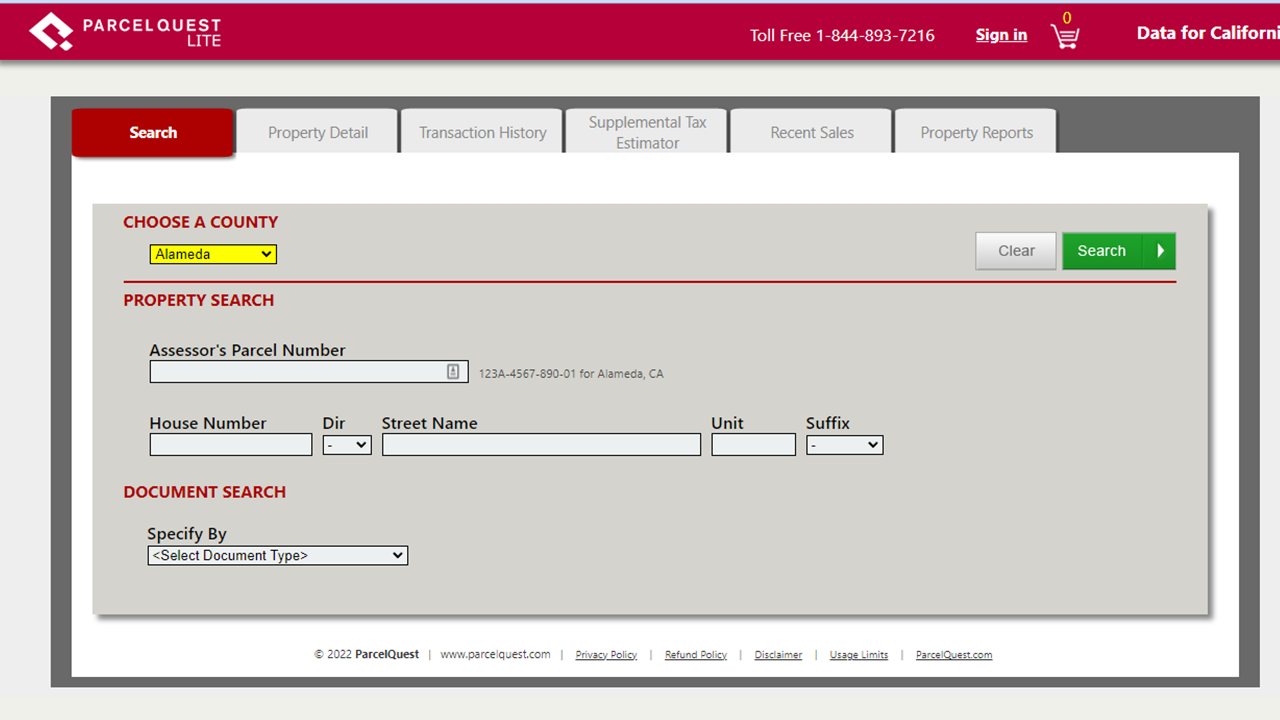Selling vacant land in California without a realtor or lawyer is pretty easy. While vacant land in California may always be in demand, there are a few quirks within California real estate law to pay attention to.
We’ve laid out the the key pieces of information you’ll need in order to sell land in California by owner.
4 Things You Need to Know Sell Your California Land…
- Your Property’s Assessor’s Parcel Number
- You Don’t Need an Attorney
- You may Need to Pay Mello-Roos Taxes
- California Protects Buyers, Not Sellers
#1 Your Property’s Assessor’s Parcel Number (APN)
An Assessors Parcel Number – more commonly called APN – is a unique number assigned to every piece of property in California.
Your property’s APN is an absolute must-have piece of information you’ll need to sell your California land.
This ‘code’ will tell everyone involved with the sale of your land – the buyer, the title company, the local governing entities – on what piece of property is being sold.
Many times people have inherited land don’t know exactly where that property is. Or, in the case of vacant land, they may have an address but that address is for several properties.
The good news is is it’s easy to look up your vacant land’s APN.
In California, the APN is assigned to your property by the county. There are 58 counties in California.
You’ll need to know which county in California your land is located in.
All 58 counties are listed on a web service called – ParcelQuest

What if I can’t find my property’s APN on ParcelQuest?
Here are a few steps to take…
- As mentioned above, you’ll need to know which county in California your land is located in
- On ParcelQuest you can look up your property by physical address. (Although, many vacant land properties don’t have an address)
- Check your property tax bill. Some county’s will have the APN on the property tax bill.
- Find the deed on the county’s clerk of records.
The APN is an absolute key piece of information you will need in order to sell your land in California.
In fact, most counties in California don’t not publish the property’s owner name!
So, without your property’s APN, a prospective buyer will not know for certain which parcel of land you are looking to sell.
#2 You Don’t Need an Attorney
Unlike other states, you do not need an attorney to sell land (or any other real estate) in California. It is recommended that you use a licensed California title company.
In California, the buyer (or buyer’s agent) will use a standard form called the Residential Purchase Agreement and Joint Escrow Instructions that is prepared by the California Association of Realtors.
This form is sent to the seller who can either accept or make changes – which will then become the final contract.
No attorney is required to review this documents, however, you may want to have one take a look to make sure you’re covered.
#3 You May Need to Pay Mello-Roos Taxes
Depending on where the location of the land is, landowners may need to pay Mello-Roos taxes in addition to their property taxes.
This tax is used imposed on some California properties to fund improvements to local infrastructure, under the Community Facilities Act.
The funds from the taxes finance bonds used to build or enhance streets, sewer and sanitation systems, police and fire protection, schools, parks, and other local cultural facilities.
#4 California Law Protects Buyers, Not Sellers
Through California Law, sellers are put under an unusually high level of responsibility to community to buyers the physical condition, features, pest problems, environmental concerns and other material defects. This can be done through the Transfer Disclosure Statement.
Bottom Line for Selling California Land
There are a lot of factors that go into selling vacant land in California beyond just the listing the property and hoping for the best.
If you are looking to sell your land in California the fast and easy then fill out our form.
We’ll send your property’s information to 12 individual California land buyers.
More Resources to Sell Land in California…
